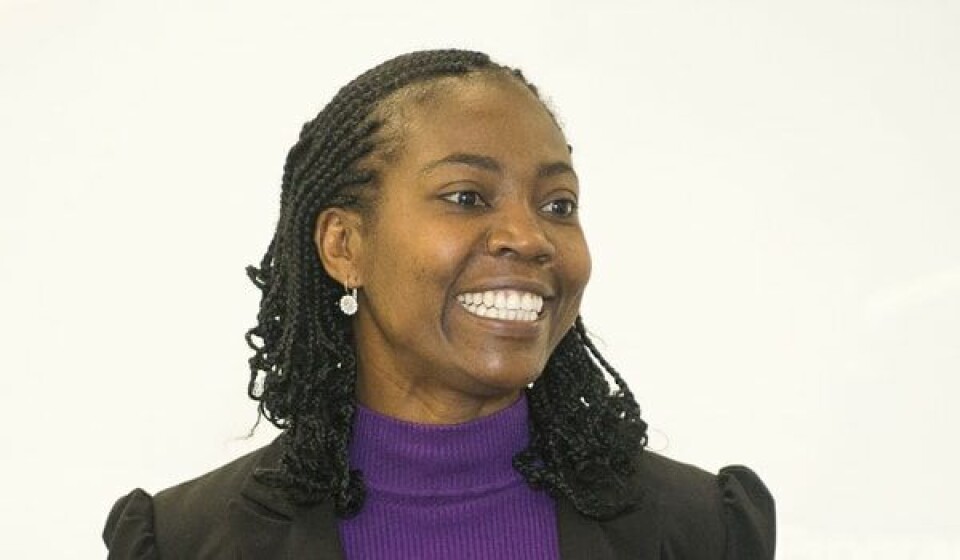Copyright : Re-publication of this article is authorised only in the following circumstances; the writer and Africa Legal are both recognised as the author and the website address www.africa-legal.com and original article link are back linked. Re-publication without both must be preauthorised by contacting editor@africa-legal.com
Sparking Fairness and Justice

Dr Lola Akin Ojelabi is an associate professor at La Trobe Law School in Melbourne. She told Craig Sisterson about her journey from Nigerian legal practice to being a ‘pracademic’ focused on access to justice and ADR.
It was the court case of a young woman, combined with observations made during a Masters’ thesis and just from growing up in Nigeria, that Dr Lola Akin Ojelabi says eventually resulted in her legal career becoming focused on access to justice for all levels of society.
Now an Associate Professor at La Trobe Law School in Melbourne, Australia, Dr Ojelabi practised for several years in Nigeria at what is now Punuka Attorneys & Solicitors.
Inspired by her principal at Punuka, who was a ‘pracademic’ – heavily involved in the legal practice while also teaching postgraduate business law – Ojelabi completed a Masters’ focused on international commercial arbitration while working as a young lawyer in Lagos.
“I did a little bit of dispute resolution in my studies,” says Ojelabi. “In practice working in Nigeria as a lawyer had its own challenges, and alternative dispute resolution – like anywhere in the world – appeared to be a good solution to some of the challenges we faced. For example, the long delays in getting your cases heard, and barriers to access to justice.”
It was the long delays for one particular woman that really struck home.
Ojelabi’s firm largely focused on business law, but one of the family law cases they took involved a young woman where there was domestic violence in the relationship. “We were trying to go through the courts to get family disputes resolved, and it took such a long time,” says Ojelabi. “It appeared as if there was really nowhere to support this woman.”
Witnessing the difficulty that young woman had getting access to justice, alongside her observations of the power imbalances in the relationships between developing and developed countries, provoked Ojelabi to wonder if there were other, better ways to ensure justice.
“I thought, what would be a good process to try to address these things?” says Ojelabi, who moved with her family to Australia in the early 2000s. “What should the world look like?”
Long before Dr Ojelabi practised as a lawyer, or became an associate professor researching access to justice and procedural fairness in dispute resolution, she had the desire to work in the law. “My Mum would always say to me there was a particular Nigerian female lawyer who would always be in the news, talking about matters of constitutional importance, and that as a young girl I loved to listen to her, and said I wanted to be a lawyer like that woman.”
While some people may have “a big story” about their desire to be a lawyer, Ojelabi says for her it was being exposed at such a young age to an empowering role model, a woman who’d gone before her, talking about really interesting matters of importance to the whole country.
Wanting to continue as a ‘pracademic’ after she moved to Australia, Ojelabi completed law papers so she could be admitted in Victoria, then a PhD on culture and conflict resolution.
For several years Dr Ojelabi did pro bono work at community legal centres, helping with access to justice and consumer protection, alongside her academic roles. More recently, she has worked as an accredited mediator for community and residential building disputes.
Her years in the law – practising, researching, and teaching – have shown Dr Ojelabi that while alternative dispute resolution (ADR) offers many benefits, it can also spark issues of fairness and access to justice. “ADR between corporations is different to ADR between a corporation and an individual, or between two individuals where there’s a power imbalance.”
Before entering a dispute resolution process, says Dr Ojelabi, parties need to consider the nature of their dispute, the characteristics of the parties involved, and the type of process.
To join Africa Legal's mailing list please click here
